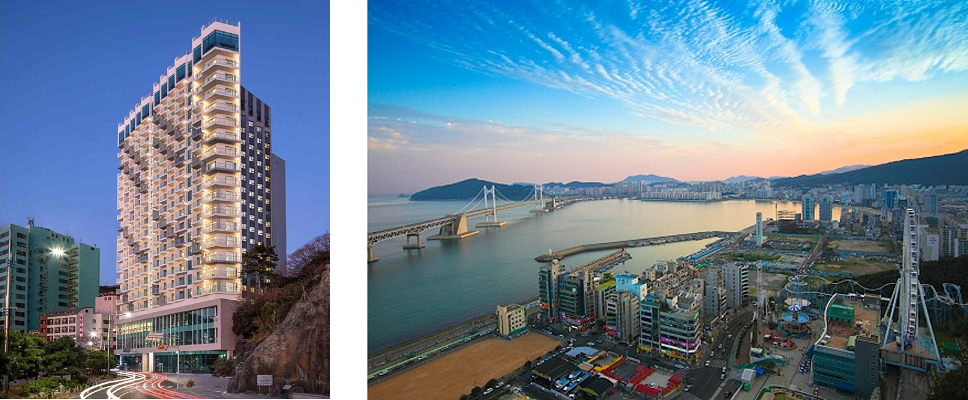OPST – 8, Nov 2023

8th Annual Meeting of the OceanPredict Science Team (OPST-8)
6 – 10 November 2023
| Where: | Busan, Republic of Korea – In-person meeting |
| When: | 6 – 10 November 2023 (Mon – Fri) |
| Duration: | 4.5 day meeting |
| Organisers: | Do-Seong Byun (Korea Hydrographic and Oceanographic Agency) Fraser Davidson (ECCC/DFO) Marie Drevillon (MOI) PN Vinayachandran (Indian Institute of Science) Kirsten Wilmer-Becker (Met Office) |
- Mon – Fri, 6-10 November 2023
- In-person meeting (possibly hybrid – tbc)
- Busan, Republic of Korea
Registration is now closed
——————————————————- NEW UPDATE —————————————————–
The new hotel is now confirmed. We will stay and meet at the Grab the Ocean hotel.
You can book your hotel room starting from 4 September 2023 via the hotel website. Please contact the programme office if you have questions.
If you click on the image(s) below you will be able to see more information the hotel facilities and room options.
If you want to book any other accommodation in Busan, everyone is welcome to do so.
Booking should be made as early as possible because hotel reservation can be difficult due to many events planned in November at Busan.
The meeting will run from Mon, 6 Nov morning (9:00) to Fri, 10 Nov, lunch time (12:30). We are intending to organise a meeting dinner on day 2 (Tue) and a sightseeing trip in day 5 (Fri afternoon).
In a bit more detail:
Mon (day 1): Introduction day – meeting objectives, UN Decade and other external engagements
Tue (day 2): OP symposium planning, TTs, OPOS overview, DINNER
Wed (day 3): System overview, observing systems, OPAS meeting
Thu (day 4): Science Day (mostly local scientist presentations)
Fri (day 5): Programme office updates, communications, future plans, SIGHTSEEING TRIP
A full agenda will be provided asap.
All OPST and OPAS members are warmly invited to attend the OPST-8 meeting in person.
We will also welcome guests and representatives from national research groups and institutes.
| No | First name | Surname | Affiliation | Representation |
|---|---|---|---|---|
| 1 | Chang-Won | Ahn | MEGAZONECLOUD | Science Day presenter |
| 2 | Santha | Akella | NASA | CP-TT |
| 3 | Enrique | Alvarez Fanjul | Mercator Ocean International | OP expert |
| 4 | Eric | Bayler | NOAA/NESDIS Center for Satellite Applications and Research (STAR) | OPAS |
| 5 | Laurent | Bertino | NERSC | OPOS |
| 6 | Gary | Brassington | BoM | OPOS |
| 7 | Do-Seong | Byun | Korea Hydrographic and Oceanographic Agency | OPOS and science day presenter |
| 8 | Jeong-Yeob | Chae | Department of Ocean Sciences, Inha University, Republic of Korea | Science Day presenter |
| 9 | Pilhun | Chang | Forecast Research Department, National Institute of Meteorological Sciences, Korea | Science Day presenter |
| 10 | Eric | Chassignet | Florida State University | OP expert |
| 11 | Jungwoon | Choi | KIOST | Guest |
| 12 | Heung-Bae | Choi | GeoSystem Research Corporation | Guest |
| 13 | Byoung-Ju | Choi | Chonnam National University | Local organiser and Science Day presenter |
| 14 | Jeyun | Chun | KIOST | Guest |
| 15 | Stefano | Ciavatta | MOi | MEAP-TT |
| 16 | Emanuela | Clementi | CMCC | Guest |
| 17 | Stephanie | Cuven | MOi | OP coordinator |
| 18 | Fraser | Davidson | ECCC | OPST co-chair |
| 19 | Pierre | De Mey-Frémaux | CNRS/LEGOS | COSS-TT |
| 20 | Marie | Drevillon | MOi | OPST co-chair |
| 21 | Yann | Drillet | MOi | OPOS |
| 22 | Dmitry | Dukhovskoy | NOAA | OPOS |
| 23 | Mikhail | Entel | Australian Bureau of Meteorology | OPAS |
| 24 | Karen | Evans | CSIRO | Invited speaker |
| 25 | Luiz Claudio | Fonseca | Brazilian Navy | OPOS |
| 26 | David | Ford | Met Office | OPOS |
| 27 | Yosuke | Fujii | JMA/MRI | OSEval-TT |
| 28 | Bon-Ho | Gu | KIOST | Guest |
| 29 | Kiyoung | Heo | KIOST | Guest |
| 30 | Fabrice | Hernandez | IRD/LEGOS | IV-TT |
| 31 | Emma | Heslop | IOC/UNESCO | Invited speaker |
| 32 | Pat | Hogan | NOAA | OPOS |
| 33 | Sang-Hun | Jeong | KIOST | Guest |
| 34 | Hyeok | Jin | GeoSystem Research Corporation | Science Day presenter |
| 35 | Kwangwoog | Jung | Seoul National University | Science Day presenter |
| 36 | Hyoun-Woo | Kang | KIOST | Science Day presenter |
| 37 | Nam-Hoon | Kim | KIOST | Science Day presenter |
| 38 | YoungHo | Kim | Pukyong National University | Science Day presenter |
| 39 | Deoksu | Kim | KIOST | Guest |
| 40 | Hojin | Kim | KIOST | Guest |
| 41 | Yong-Yub | Kim | IBS Center for Climate Physics | Guest |
| 42 | Sang-Yeob | Kim | KIOST | Guest |
| 43 | Villy | Kourafalou | Univ. of Miami | COSS-TT |
| 44 | Alexander | Kurapov | NOAA | COSS-TT |
| 45 | Jae-Il | Kwon | KIOST | Local organiser and Science Day presenter |
| 46 | Yeong-Yeon | Kwon | KIOST | Guest |
| 47 | Pierre Yves | Le Traon | MOi | OPAS |
| 48 | Dong Eun | Lee | Chungnam National University | Science Day presenter |
| 49 | Jae-Ho | Lee | KIOST | Guest |
| 50 | Jeong-Gil | Lee | KIOST | Science Day presenter |
| 51 | Joonho | Lee | UST21 | Science Day presenter |
| 52 | Joon-Soo | Lee | National Institute of Fisheries Science | Science day presenter |
| 53 | Guimei | Liu | NMEFC | OPOS |
| 54 | Matthew | Martin | Met Office | DA-TT |
| 55 | Simona | Masina | CMCC | Expert |
| 56 | Kristian | Mogensen | ECMWF | CP-TT |
| 57 | Andrew | Moore | University of California Santa Cruz | DA-TT |
| 58 | Peter | Oke | CSIRO | Invited speaker |
| 59 | Young-Min | Park | GeoSystem Research Corporation | Guest |
| 60 | Sung-Hwan | Park | KIOST | Guest |
| 61 | Young-Gyu | Park | KIOST | Science Day presenter |
| 62 | Francis | Pavanathara | INCOIS | OPAS |
| 63 | Nadia | Pinardi | UniBo | Invited speaker |
| 64 | Joanna | Post | IOC/UNESCO | Invited speaker |
| 65 | Elisabeth | Remy | MOi | OSEval-TT |
| 66 | Hal | Ritchie | ECCC | OP expert |
| 67 | Andreas | Schiller | Unaffiliated | OP expert |
| 68 | Vineet Kumar | Singh | Typhoon research Center, Jeju National University | Science Day presenter |
| 69 | Gregory | Smith | ECCC | IV-TT |
| 70 | Jun-Hyeok | Son | IBS center for climate physics in Pusan National University, Korea | Guest |
| 71 | Ann Kristin | Sperrevik | The Norwegian Meteorological Institute | DA-TT |
| 72 | Clemente | Tanajura | UFBA & REMO | OPOS |
| 73 | Jennifer | Veitch | SAEON | OPOS |
| 74 | PN | Vinayachandran | Indian Institute of Science | OPST co-chair |
| 75 | Martin | Visbeck | GEOMAR | Invited speaker |
| 76 | Liying | Wan | National Marine Environmental Forecasting Ceter, | Guest |
| 77 | Zhaoyi | Wang | National Marine Environmental Forecast Center | Guest |
| 78 | Kirsten | Wilmer-Becker | Met Office | OP coordinator |
| 79 | Goro | Yamanaka | Meteorological Research Institute | OPOS |
| 80 | Liuqian | Yu | Hong Kong University | MEAP-TT |
The OPST-8 presentation (pdf) can be viewed/downloaded from the list below.
Science Day presentation are available here.
The OPST-8 Science Day saw various contributions from the host country covering different topics, including “Regional and global operational ocean forecasting systems in Korea, user application of ocean forecasting systems and science in support of ocean prediction. Presentation were made as oral talks and posters.
| Oral presentations | ||||
|---|---|---|---|---|
| Session 1: Regional and global operational ocean forecasting systems in Korea | ||||
| 1.1 | KHOA’s activity on ocean forecasting activities and their applications | Do-Seong Byun (KHOA) | Abstract | Recording (includes the 5 first presentations) |
| 1.2 | Development of a marine forecasting system for use in fisheries | Joon-Soo Lee (NIFS) | Abstract | Recording (includes the 5 first presentations) |
| 1.3 | Introduction to Korean Operational Oceanographic System (KOOS) | Jae Il Kwon (KIOST) | Abstract | Recording (includes the 5 first presentations) |
| 1.4 | Operational Wave Forecasting System in KMA and its Applications | Pilhun Chang (NIMS) | Abstract | Recording (includes the 5 first presentations) |
| 1.5 | Introduction to KIOST Ocean Climate Seasonal Prediction Modeling and Outlook Service | Hyoun-Woo Kang (KIOST) | Abstract | Recording (includes the 5 first presentations) |
| Session 2: User application of ocean forecasting systems | ||||
| 2.1 | Digital Twin for Ocean – Extension of Our Experiences and Experiments | Changwon Ahn (MEGAZONE CLOUD) | Abstract | Recording |
| 2.2 | Applicability of AGRIF in the Regional Ocean Circulation Model | Hyeok Jin (Geosystem Research) | Abstract | Recording |
| 2.3 | Application of numerical models in UST21: from coastal to open ocean | Joonho Lee (UST21) | Abstract | Recording |
| 2.4 | Tracking the pumice rafts from the Fukutoku-Okanoba submarine volcano with Satellites and a Lagrangian Particles trajectory model | Young-Gyu Park (KIOST) | Abstract | Recording |
| 2.5 | The achievement of KOOS in national agencies and industries | Nam-Hoon Kim (KIOST) | Abstract | Recording |
| Session 3: Science in support of ocean prediction | ||||
| 3.1 | Local stratification preconditions the marine heatwaves in the Yellow Sea | Dong Eun Lee (Chungnam National University) | Abstract | Recording |
| 3.2 | Containerization of numerical ocean model for computational reproducibility and portability in the cloud computing | Kwangwoog Jung (Seoul Nat. University) | Abstract | Recording |
| 3.3 | Evaluation of impact on regional observing system through Observing System Experiment in Northwest Pacific | YoungHo Kim (Pukyong National University) | Abstract | Recording |
| 3.4 | Evaluation of ocean reanalysis data for the Yellow Sea and East Sea | Byoung-Ju Choi (Chonnam National University) | Abstract | Recording |
| 3.5 | Impact of satellite-based thickness data assimilation on bias reduction in Arctic sea ice concentration | Jeong-Gil Lee (Chonnam Nat. University) | Abstract | Recording |
| 3.6 | Prediction of sea surface current around the Korean peninsula using artificial neural network | Jeong-Yeob Chae (Inha University) | Abstract | Recording |
| 3.7 | Seasonal differences in tropical cyclone-induced sea surface cooling in the western North Pacific | Vineet Kumar Singh (Jeju National University) | Abstract | Recording |
| No | Poster presentation title | Poster presenter | Abstract | Poster (pdf) for download |
| 1 | Influence of warm surface water originating from the East China Sea on surface water temperature off the south coast of Korea in summer | Jong-Kyu Kim and Byoung-Ju Choi (Chonnam Nat. University) | Abstract | 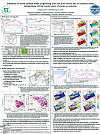 |
| 2 | An assessment of High-Resolution regional ocean reanalysis for Northwest Pacific K-ORA22 | Inseong Chang (Pukyong National University) | Abstract | 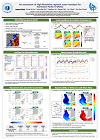 |
| 3 | Conducting and Performance Evaluation of a High-Resolution Regional Ocean Model in Yeosu-Gwangyang Bay using GFDL MOM6 | Nayoung Park, Inseong Chang, Young Ho Kim (Pukyong Nat. University) | Abstract | 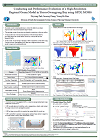 |
| 4 | A numerical study on Natural and Anthropogenic effects on Primary Production in Gwangyang Bay, Korea | Seung-Hwa Chae1, Yang-Ki Cho1, Yong-jin Tak2 and Myeong-Taek Kwak3 (1Seoul National University 2Gangneung-Wonju National University 3Chonnam Nat. University) | Abstract | 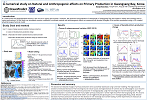 |
| 5 | Influence of warm surface water originating from the East China Sea on surface water temperature off the south coast of Korea in summer | Jae-Sung Choi and Byoung-Ju Choi (Chonnam National University), Kyungman Kwon (KIOST) | Abstract | 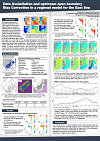 |
| 6 | A multi-year climate prediction system based on CESM2 | Yong-Yub Kim (PKNU) et al | Abstract | 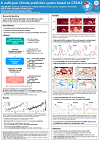 |
| 7 | Development of Four-Dimensional Variational Global Ocean Data Assimilation System for Coupled Predictions in Japan Meteorological Agency and Evaluation of the effects of Argo Data Quality Control in the System | Yosuke Fujii, MRI-JMA | Abstract | 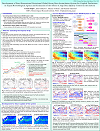 |
Recordings of parts of the OPST-8 meeting are here.
Please visit the following website for Visa and Covid-information:
- Information on Visas for Korea: https://overseas.mofa.go.kr/fi-en/brd/m_9574/view.do?seq=754925&page=1
- Information about Covid19 regulations on entering Korea: https://www.visa.go.kr/openPage.do?MENU_ID=10101
The OPST-8 report is available for download.
